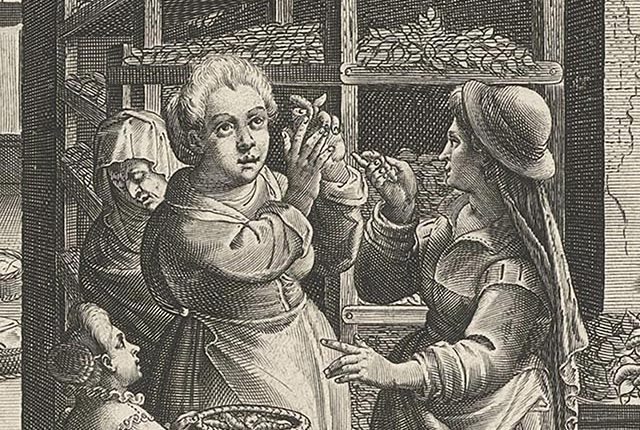
On December 1 and 2, 2023, scholars from various disciplines convened at a two-day conference titled “Converting Natural Resources: Representations, Performances, Narratives,” hosted by the William Andrews Clark Memorial Library in Los Angeles. This gathering, building upon discussions initiated at the Renaissance Society of America meetings in Dublin in 2022 and San Juan in 2023 was organized by Elisa Daniele, Marie Skłodowska-Curie Fellow, and Bronwen Wilson, Director of the Clark Library.
Presenters examined textual, visual, and material evidence that repeatedly illuminated complex relations between labor and resources in the early modern world. Particularly noteworthy were cases in which early modern consumers were distanced from the work involved in acquiring wood, coal, clay, pearls, coral, and agricultural products that sustained them. Elite women, for example, solidified alliances through sugared gifts, benefiting from the labor involved in extracting raw materials. In addition to examining the process of converting material resources, one paper highlighted the commodification of African bodies and the undifferentiated portrayal of enslaved Africans in both place and gender.
Scholars across disciplines, including literature, history, and art history, used diverse methodologies to probe objects and histories. The exploration of body adornment practices in paintings through the lens of material culture, and an assessment of how Africans have been perceived to use beaches and the sea led to reconsiderations of how historical images are used by researchers. Papers unpacked early modern racialized language through materials like pitch and tar, as well as how coal was leveraged for stigmatization and racialization, featuring productive intersections of ecocriticism and the humanities.
The conference was attended by graduate students, museum curators, and academics, as well as residents of Los Angeles and visitors to California. A wide-range of topics and geographies prompted reflections on the demands of discipline and historiography. Participants were invited to reflect on the stakes and their investments in the state of the humanities, as well as on representations, performances, and narratives in the early modern period.
-Cynthia Fang, Doctoral Candidate, Department of Art History

